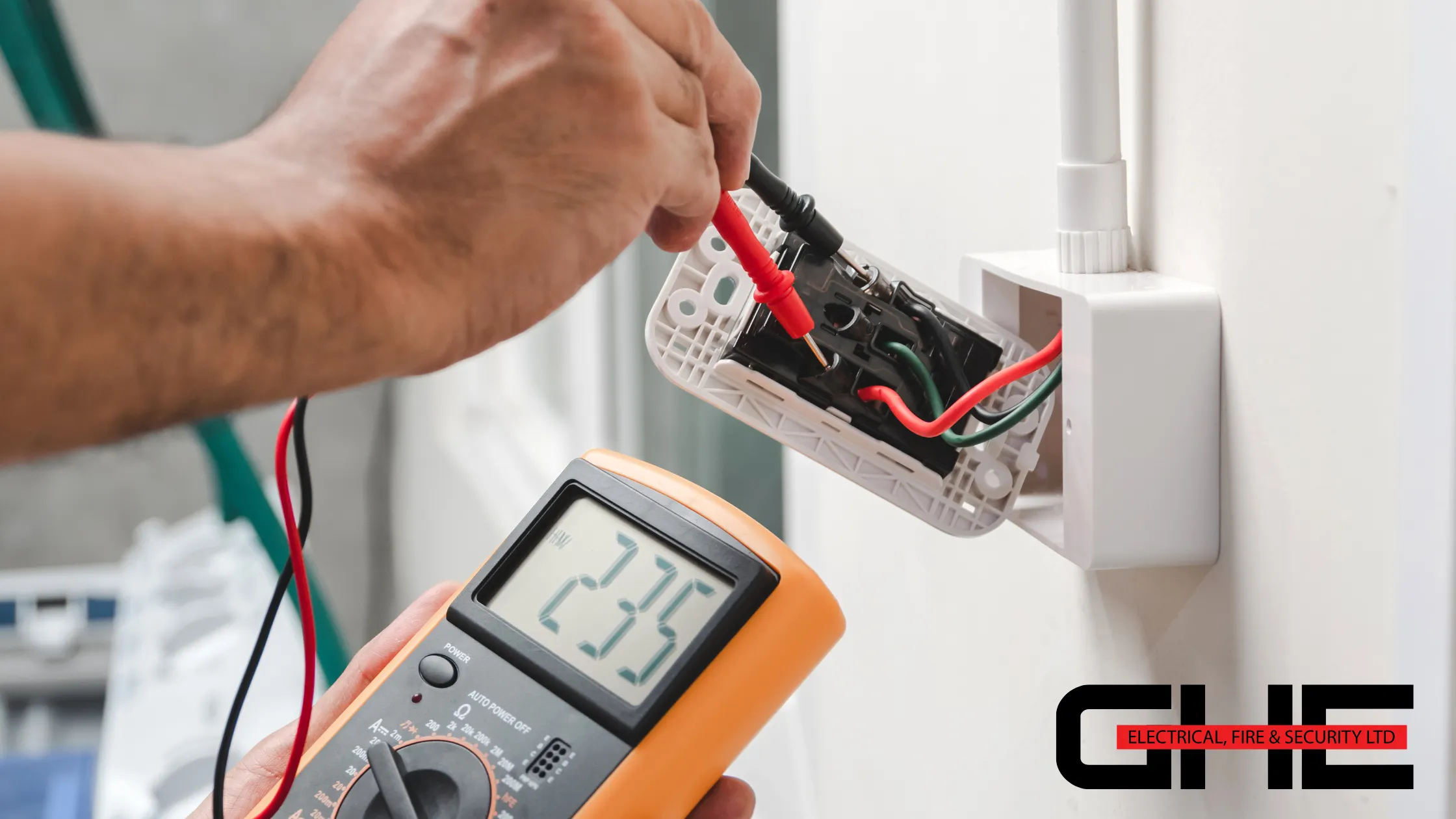Rewiring a House for Modern Electrical Needs: Why It's Essential for Today's Homes

In today’s digital age, our homes are filled with more electronic devices and appliances than ever before. From smart thermostats and LED lighting to home automation systems and multiple high-powered appliances, our electrical needs are continuously evolving. Rewiring a house for modern electrical needs has become an essential upgrade for many homeowners in the UK, ensuring their electrical systems can safely and efficiently handle the growing demands of modern living.
This blog will explore why rewiring your house for modern electrical needs is important, what it involves, and how it can enhance your home’s safety, functionality, and energy efficiency.
Why Rewire a House for Modern Electrical Needs?
Over time, the wiring in your home can become outdated, worn, or insufficient to support modern electrical demands. Old wiring may struggle to meet the power needs of new technologies, and it can pose a safety risk if it hasn’t been updated in many years. Rewiring for modern electrical needs ensures that your home can accommodate today's lifestyle while also staying safe, efficient, and compliant with UK regulations.
Here are some key reasons why rewiring your house for modern electrical needs is a smart decision:
1. Support for High-Powered Devices and Appliances
The electrical demands of a modern home are significantly higher than in the past. With the proliferation of devices like televisions, computers, gaming consoles, kitchen appliances, and home office equipment, the need for a reliable electrical system has never been more important. Older wiring systems were designed for fewer, less powerful appliances, and they may not be able to support the increased load.
Rewiring your house ensures that your electrical system can handle the power needs of modern appliances. This includes upgrading circuits and outlets to safely accommodate the higher demands of devices like electric cookers, washing machines, air conditioners, and home entertainment systems. Without an updated electrical system, your home may face frequent power cuts, tripped circuit breakers, or, in worst-case scenarios, electrical fires.
2. Safe and Efficient Power Distribution
Old wiring can become inefficient over time, leading to power loss and wasted energy. If the wiring is frayed or outdated, it may not distribute power as efficiently as newer systems, meaning that more energy is used than necessary, ultimately driving up your electricity bills.
Rewiring your home for modern electrical needs involves installing higher-quality, energy-efficient wiring that optimises the flow of electricity, reducing wastage. In addition, a rewired system can support energy-efficient appliances, such as LED lighting, smart thermostats, and energy-efficient home gadgets, which are designed to consume less power and help lower your household’s carbon footprint.
3. Future-Proofing Your Home
As technology continues to evolve, so will the electrical needs of your home. Whether you’re planning to install solar panels, an electric vehicle (EV) charging point, or integrate more smart home devices, your electrical system must be ready to handle these future upgrades.
Rewiring your house for modern electrical needs allows you to future-proof your property by ensuring that the system is flexible enough to accommodate new technologies. Installing extra circuits or upgrading your fuse box during the rewiring process can make it easier to integrate green technologies, such as solar panels or battery storage, as well as additional electrical devices without worrying about overloading the system.
4. Compliance with Current UK Electrical Regulations
In the UK, electrical systems must comply with the latest safety standards set out by the 18th Edition of the IET Wiring Regulations. If your home was built or last rewired before the introduction of these standards, your electrical system may not meet current safety regulations. This could pose significant risks to your family and property.
Rewiring your home ensures that your electrical system complies with the most up-to-date regulations, protecting you from potential hazards and ensuring that your home meets legal requirements. A qualified electrician will ensure that your home is fully compliant with the IET Wiring Regulations, including aspects like circuit design, earthing, and bonding.
5. Increase Your Home’s Value
If you’re planning to sell your home in the future, having a modern, rewired electrical system can increase the market value of your property. Many potential buyers are looking for homes that are safe, energy-efficient, and ready to support modern technologies. A newly rewired home is a major selling point, as it reassures buyers that the electrical system is up to date and compliant with UK regulations, saving them from costly upgrades in the future.
Additionally, homes with modern electrical systems may attract higher offers, as buyers value safety and long-term reliability. It’s an investment that not only improves your home’s functionality but also boosts its resale value.
6. Improved Safety
Old and outdated wiring is one of the leading causes of electrical fires in the UK. Over time, insulation on wires can degrade, and older systems may become exposed or faulty, increasing the risk of short circuits, shocks, and fire hazards. This is particularly true in homes with older electrical systems, such as those with knob-and-tube wiring or fuse boxes instead of modern consumer units.
Rewiring your house with modern electrical systems improves safety by replacing faulty or dangerous wiring and upgrading components like fuse boxes and circuit breakers. By installing more advanced protective systems, such as RCDs (Residual Current Devices), you can reduce the risk of electric shocks and electrical fires, providing peace of mind for you and your family.
When Should You Consider Rewiring for Modern Electrical Needs?
Rewiring is not always necessary, but there are certain circumstances when it’s essential. You should consider rewiring your home if:
- Your home is over 25 years old: Older homes often have outdated wiring that can’t handle the demands of modern electrical appliances.
- Frequent electrical issues: If you experience tripped circuit breakers, flickering lights, or electrical shocks, it’s a sign that your wiring may be faulty.
- Home renovations: If you’re renovating your home and adding new rooms, appliances, or technologies, you may need to upgrade your electrical system to support the changes.
- You’re installing high-power appliances or technologies: Adding devices like electric ovens, air conditioners, or EV chargers requires modern electrical systems.
- Safety concerns: If your home’s wiring is frayed, damaged, or shows signs of wear and tear, rewiring is essential to avoid safety risks.
The Rewiring Process: What to Expect
Rewiring your home is a significant task, but it’s one that pays off in the long run. Here’s a brief overview of the process:
- Initial Consultation and Assessment: A qualified electrician will assess your existing wiring and discuss your needs, including any planned renovations or new appliance installations.
- Planning: A rewiring plan will be created, including upgrading your fuse box, adding circuits where necessary, and ensuring compliance with modern electrical regulations.
- Rewiring: The electrician will replace old wiring, install new circuits, outlets, and switches, and update your consumer unit. This may involve opening up walls or ceilings to access the wiring.
- Testing and Certification: After installation, the electrical system will be thoroughly tested to ensure safety and functionality. You will receive an Electrical Installation Certificate to confirm that the rewiring complies with UK regulations.
Conclusion
Rewiring a house for modern electrical needs is an essential upgrade that ensures your home is safe, efficient, and ready for the future. By updating your electrical system, you can accommodate new technologies, reduce energy consumption, and improve safety – all while increasing your home’s value. Whether you're renovating your property or simply upgrading outdated wiring, rewiring is an investment that pays off in the long run.
If you’re considering rewiring your home, make sure to hire a qualified electrician who can assess your needs, ensure compliance with UK regulations, and complete the work safely and efficiently.
Contact a trusted electrical professional today to discuss how rewiring your house for modern electrical needs can improve your home’s functionality and safety.


